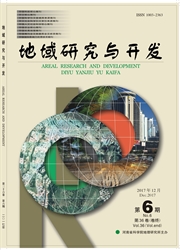

 中文摘要:
中文摘要:
“主体功能区”是“十一五”规划纲要中提出的全新的发展理念和区域开发模式,对于地理学而言具有重要的意义:首先,它是地理学参与社会实践的重大突破。其次,它孕育着重大的理论内涵,是地理学整体性、差异性、区域性和综合性思维的重大发展。从“功能区”的理论视角入手,从区域功能的角度来辨识和构建区域是地理学传统区域观的重大发展,对于学科发展具有极其重要的意义。同时,主体功能区不能仅仅停留在科学概念的层面,必须与具体的机制和配套政策相结合才能引领区域协调发展的实践,而生态补偿机制正是其中的重要内容,从学科基础的角度进行分析,指出区域外部性、自然格局、区域结构、区域本底性质等地学基础要素是建立基于主体功能区的生态补偿机制的影响因素和重要科学依据。
 英文摘要:
英文摘要:
The major function oriented zone(MFOZ) is a new development pattern illustrated by the eleventh five-year plan, and it has great significance for geography. First, it' s a breakthrough for geography to solve practi- cal social problem, and second, it conceives important theoretical meanings for geography. This thesis initially il- lustrate the concept of functional region, and believe that to identify regions by its function is an innovation for the traditional region-distinguishing mode in geography and is benefit to its development. The concept of dividing re- gions by main function should not only be a scientific concept, but also be integrated with appropriate policy and mechanism to solve the practical social problems, and the ecological compensation is an important one of them. This thesis analyzes this issue at a basic theory scale, illustrate that, regional externality, regional structure, natu- ral pattern and regional background are the basic geographical factors to design ecological compensation mechanism for dividing regions by main function. Finally this thesis tried to analyze the internal process of this mechanism.
 同期刊论文项目
同期刊论文项目
 同项目期刊论文
同项目期刊论文
 期刊信息
期刊信息
